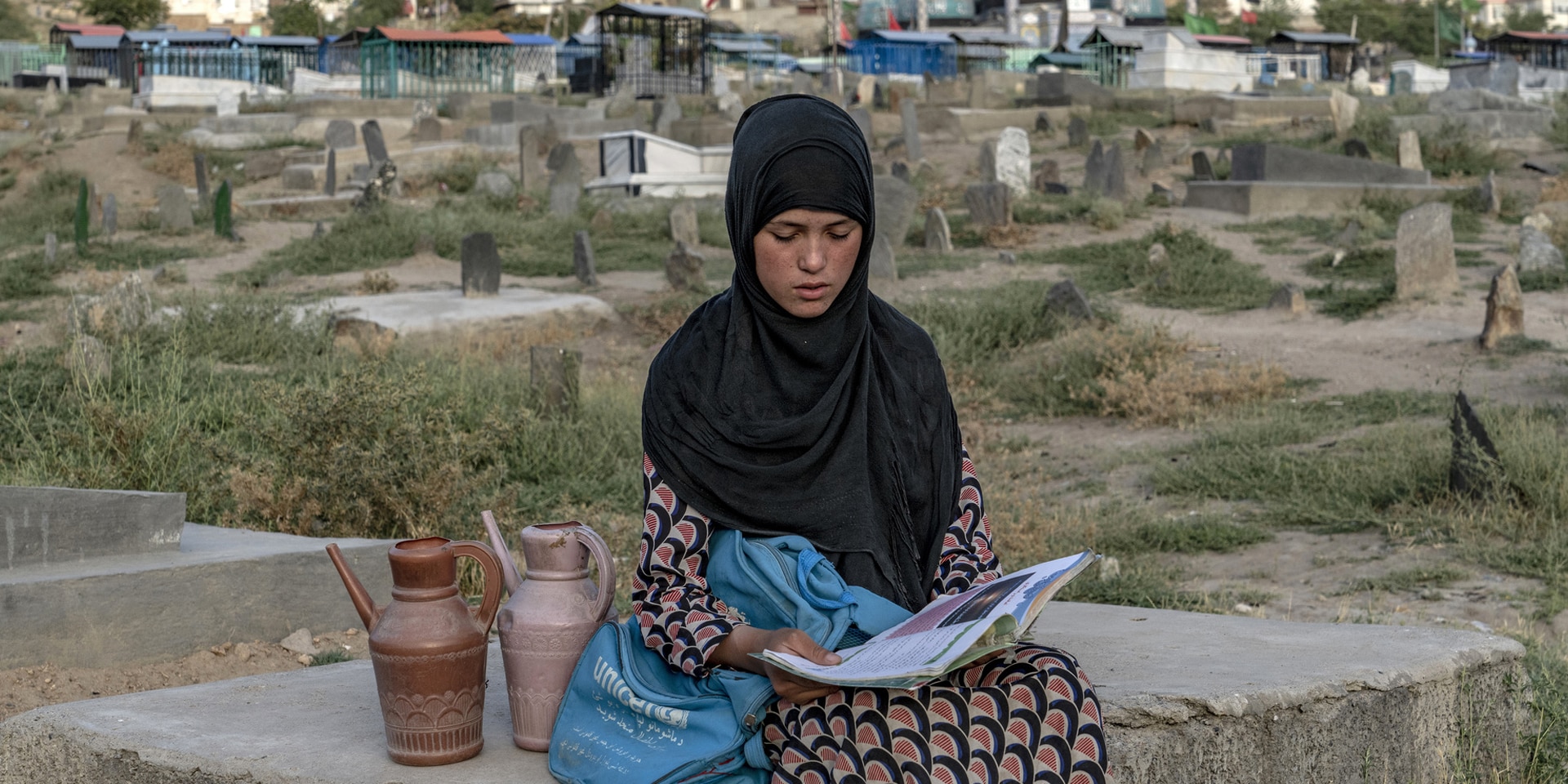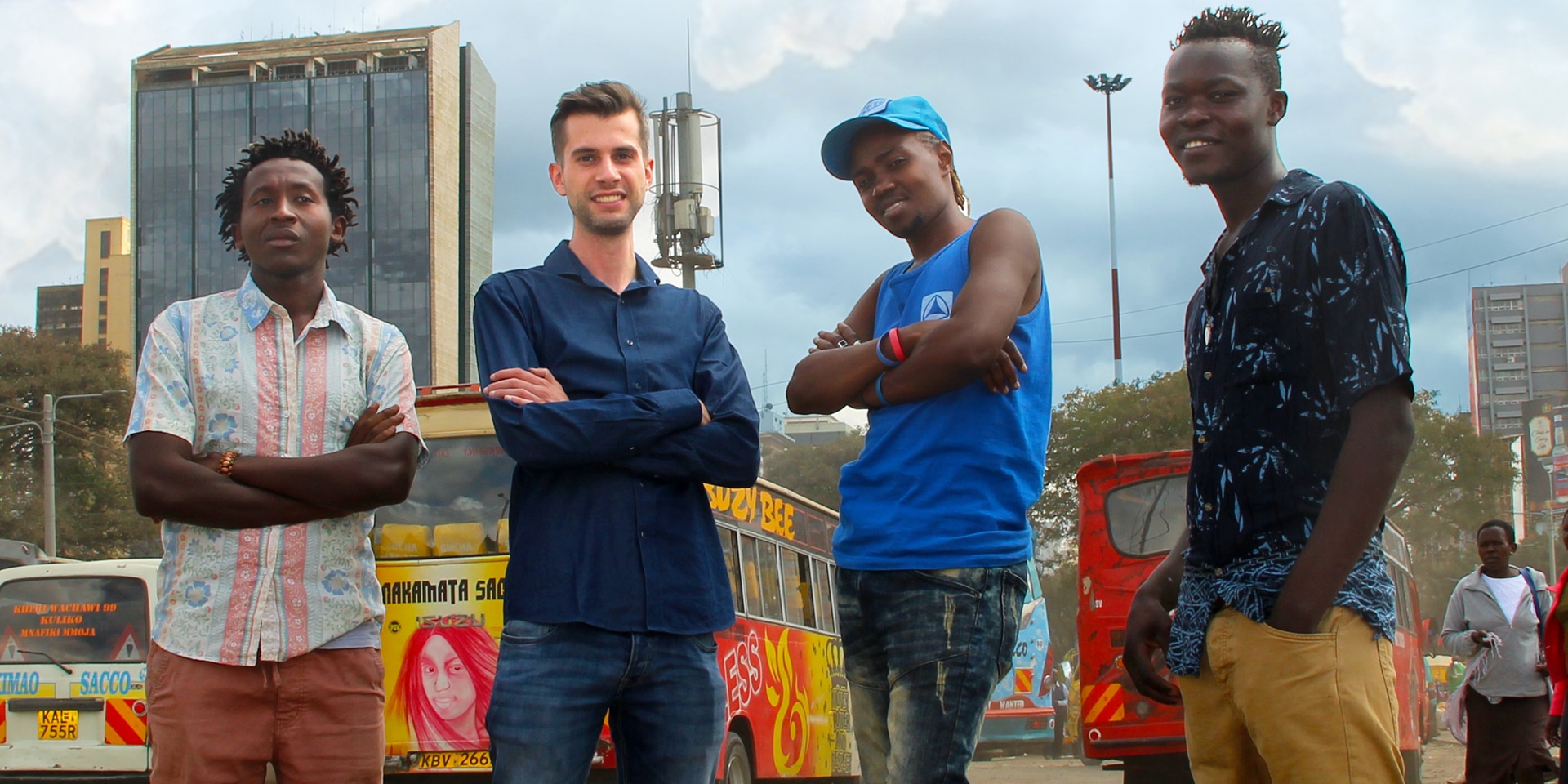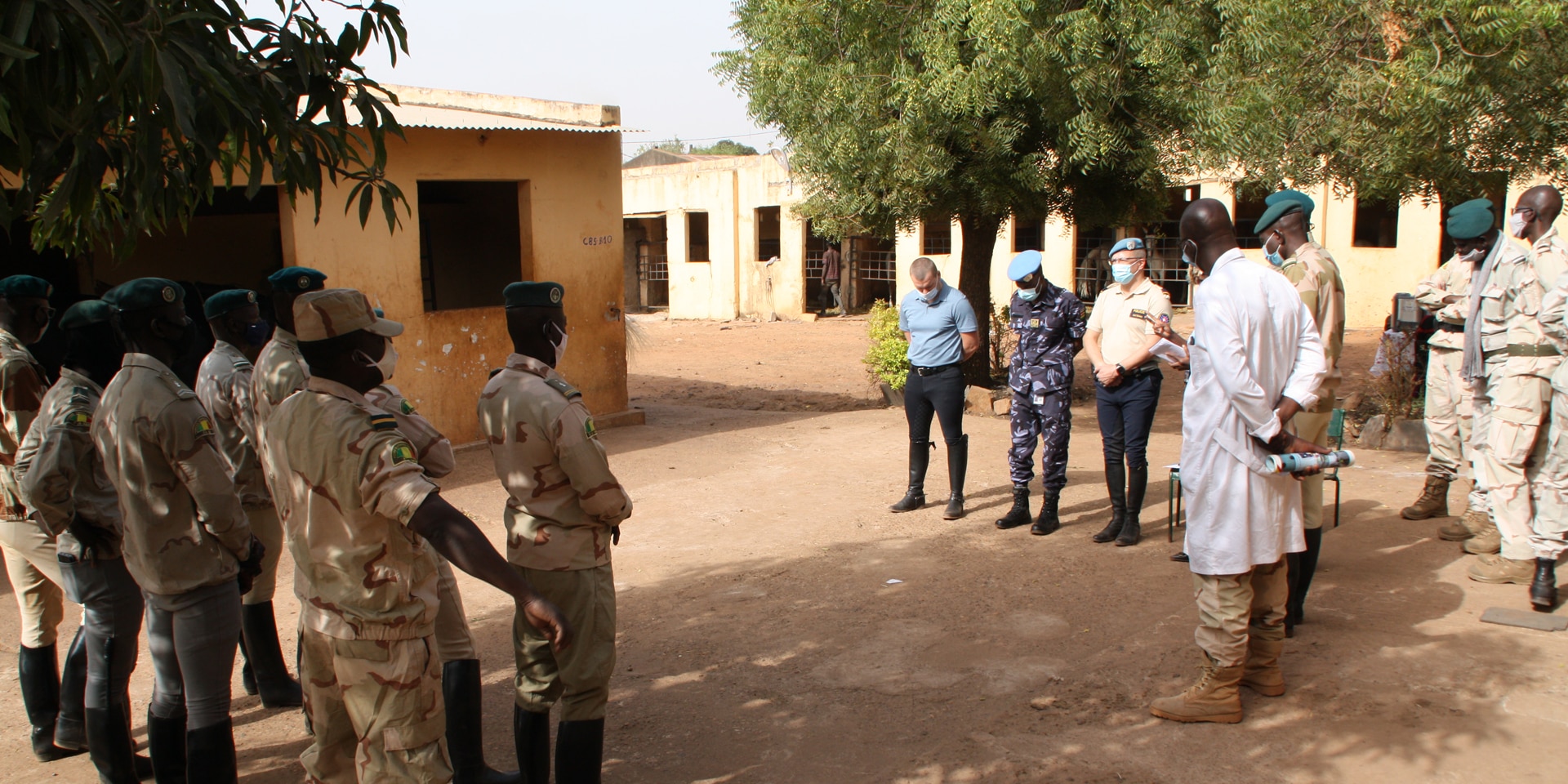Second half of the 2030 Agenda: "We need to speed up the pace of implementation"
The time we have to implement the 2030 Agenda for Sustainable Development is half over. So how far have we got in implementing the 17 goals we set ourselves eight years ago? This question is at the centre of this year's High-level Political Forum on Sustainable Development (HLPF) in New York. Markus Reubi, Federal Council delegate for the 2030 Agenda, and Christian Frutiger, head of the Thematic Cooperation Division at the SDC, explain to us what it means for Switzerland.
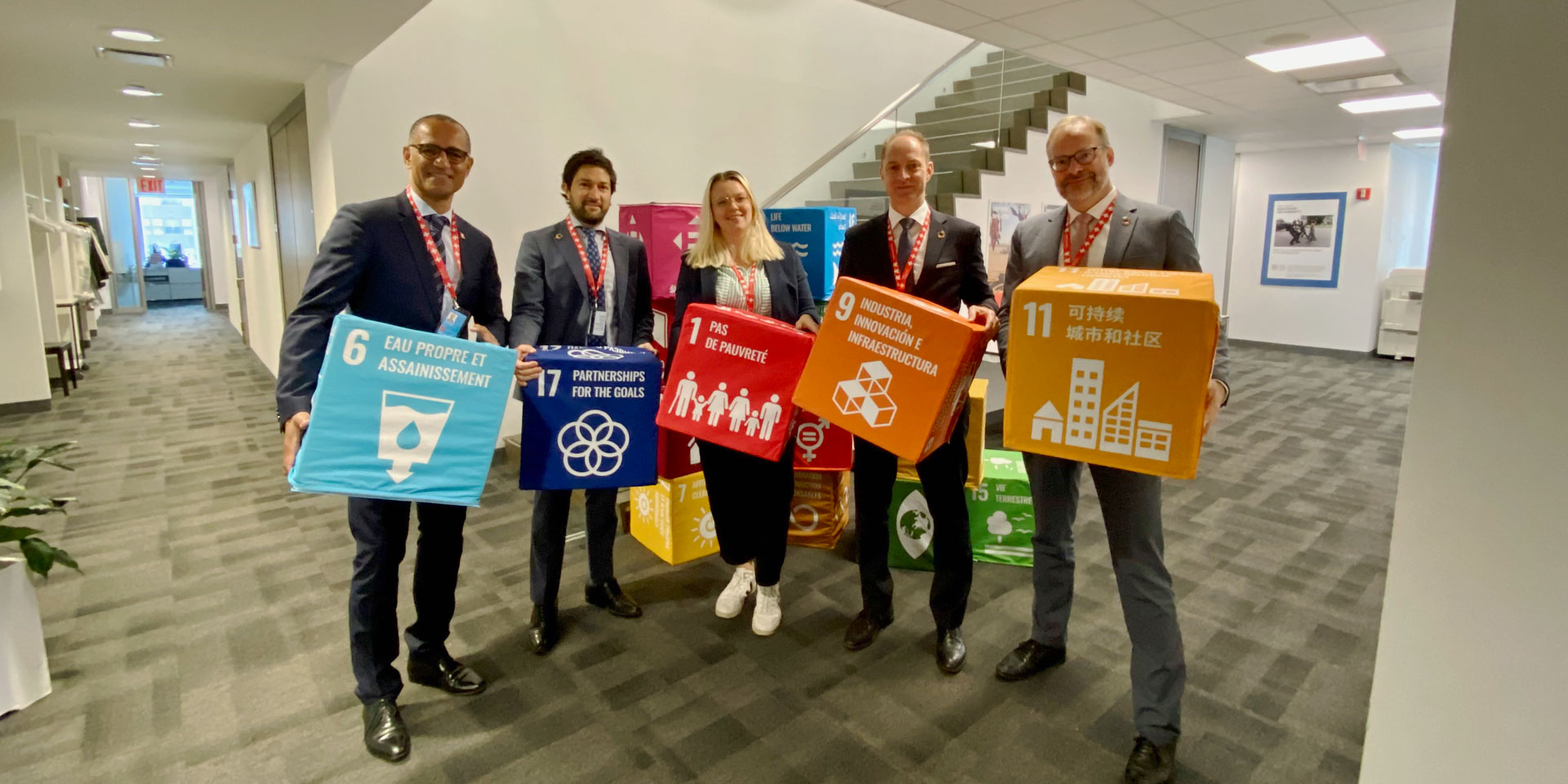
The Swiss delegation to the High Level Political Forum 2023 in New York says it: The 2030 Agenda paves the way to a more sustainable, resilient and inclusive future. © SDC
We're now at the halfway point for the 2030 Agenda. How have we done? How much progress have we made with the SDGs?
Markus Reubi (MR): Unfortunately, it doesn't look great. Things got off to a good start, but globally only about 12% of the 169 targets are now on track. More than half are going in the right direction, but moving too slowly. Another third of the targets have made no progress at all. In some cases, things have even gone backwards since 2015. This is according to the SDG Progress Report 2023, which the UN has just published.
Christian Frutiger (CF): The situation is really worrying. Especially when you think of the millions of people behind these numbers. Taking just one of the goals on poverty, if trends continue like this, there will still be 570 million people living in extreme poverty by 2030.
That's not what we would have hoped for halfway through. How do we deal with such a sobering conclusion?
CF: We must take the issue seriously and at the same time not be discouraged. Right now – for the second half – we need to speed up the implementation of the 2030 Agenda. A first opportunity to send a signal will be at the 2023 SDG Summit in September, where heads of state and government will exchange views on the 2030 Agenda. The UN secretary-general sums it up very well in his report: "The SDG Summit in September must signal a genuine turning point. It must mobilise the political commitment and breakthroughs our world desperately needs."
MR: We also mustn't forget that the 2030 Agenda concerns each and every one of us. It points the way to a more sustainable, resilient and inclusive future. Switzerland is ready to work with conviction to achieve the goals. But it can't do it alone: states, cities and municipalities, civil society, business and academia all have to do their bit. We all have a role to play according to our possibilities. In particular, we see a lot of progress, but also still a lot of potential, in the increased mobilisation of the private sector and its alignment with the SDGs.
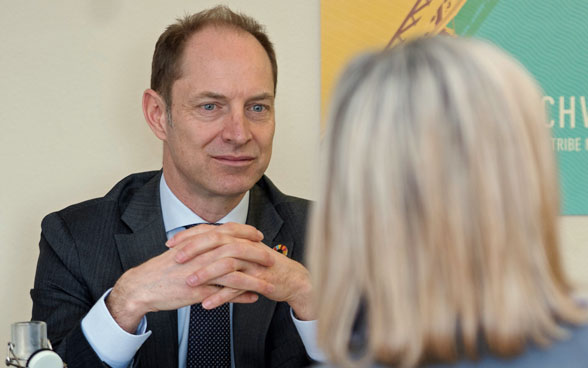
The 2030 Agenda has become a common language for all the countries of the world – in the Global South as well as the North – with everyone doing their bit. That's quite a rare thing, isn't it?
MR: Yes, you're right. The 2030 Agenda provides a common frame of reference for sustainable development by which all are guided. The common language is very important here – it creates a sense of shared accountability. It provides a tool to talk to each other on an equal footing and to put local and national efforts into a global context. That is one of its great strengths.
CF: In its new International Cooperation Strategy 2025–28, which is currently undergoing public consultation, Switzerland is also guided by the 2030 Agenda. It supports developing countries in their implementation of the 2030 Agenda, but also in adopting reforms to enable them to work effectively alongside Switzerland in addressing global challenges. Switzerland aims to alleviate poverty and promote sustainable development. Accordingly, the new strategy sets out four broad goals: save lives and ensure access to high-quality basic services; enable sustainable economic development; protect the environment and combat climate change; and support peace, democracy, the rule of law and respect for human rights.
The Federal Council's 2030 Sustainable Development Strategy is based on the 2030 Agenda. It identifies three priority themes: sustainable consumption and production; climate, energy and biodiversity; and equal opportunities and social cohesion. What action is Switzerland taking in order to meet these objectives?
MR: The Federal Council put it this way when presenting Switzerland's country report last year: "Moving in the right direction but not fast enough." The three priority themes were chosen because Switzerland is facing particular challenges in those areas and there's a need for closer coordination between different policy areas.
Consider this: within the Federal Administration alone, all seven departments and the Federal Chancellery are involved in the implementation of the 2030 Agenda. In addition, there are local and cantonal actors, as well as non-state actors. Weighing up the interests and coordinating the groups involved is a major task. For this purpose, the 2030 Agenda Steering Committee develops four-year action plans with complementary measures within the priority themes. These complement the efforts made in the departments. The committee is advised by the newly constituted 2030 Agenda Advisory Group, composed of 18 high-profile figures from business, science and civil society. However, international developments are also decisive for progress in these priority areas. Switzerland doesn't operate in a vacuum and must act in coordination with international partners.
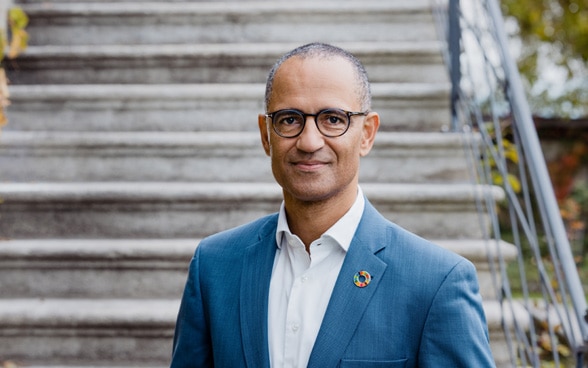
You are addressing the international level. At the moment, you are attending the HLPF, where the international community is meeting to discuss the 2030 Agenda. Where do you currently see opportunities for more international coordination?
MR: International coordination is indispensable in almost all areas and is already taking place successfully in many places. In some areas, such as creating transparency in sustainable financial products and services, I see further potential for joint solutions. Here it's becoming increasingly clear that Switzerland can't just act autonomously and must advocate for an internationally coordinated approach. The 2030 Agenda is also a platform for international exchange on solutions and best practices. There is also potential here: for example, cities could network and exchange more.
CF: Another opportunity to strengthen international coordination currently exists in the water sector. Switzerland is highly regarded in this area and, along with Senegal, chaired one of the five interactive dialogues on cooperation at the recent UN Water Conference. Switzerland has been active internationally in the water sector for more than 50 years, focusing on access to clean drinking water through innovation as well as well-integrated water resource management. We've got a great deal of experience in cross-border cooperation on this issue and we're trying to deepen it by promoting water not only as a key to sustainable development, but also as a vector for peace.
Switzerland is organising a side event on water here at the HLPF. Using examples from different regions, we want to show that water and sanitation are a common thread running through all the sustainable development goals of the 2030 Agenda and that they therefore also make an important contribution to peace and stability.
There are seven years left for the implementation of the 2030 Agenda. The world is facing a series of crises that are making it difficult to achieve the various SDGs. How should the international community now proceed to get back on track?
CF: A number of crises have indeed placed great demands on Switzerland's international cooperation in recent years. To meet them, it has shown flexibility and adapted its methods of intervention to rapidly changing circumstances. The future IC Strategy 2025–28 will further strengthen this agility and better equip Switzerland to respond to the global nature of today's crises.
At its heart, international cooperation aims to promote the values that make Switzerland strong: the rule of law and democracy, the market economy, human rights, gender equality, dialogue, solidarity, the integration of minorities, humanitarian principles and international law. These are the same values enshrined in the 2030 Agenda that will enable us to implement the SDGs.
MR: At the same time, there's a growing awareness that international cooperation alone can't provide all the answers to this accumulation of crises. The last few years have shown us the weaknesses in the system. It's now up to us to introduce systemic change – such as adjustments to the international financial architecture or the greater inclusion of economic actors. The 2030 Agenda provides us with a frame of reference for this. It shows us the priorities we need to pursue to emerge stronger from the crises and create a more resilient, sustainable future.

